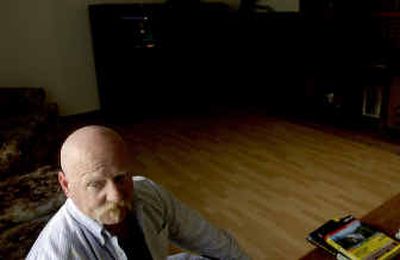Program bridges gap for convicts

When Jennifer Peterson was released from prison last month, she wanted nothing more than a chance at a fresh start.
She had stayed meth-free for 26 months. She wanted a home, job and car before her two daughters moved in with her. What she got was a bed in a shelter, if she wanted it, and nothing more.
“It’s amazing they put people out of prison with no resources and expect them to sink or swim,” said Peterson’s friend Chrystal Hodgson. Hodgson, who works for the state Department of Health and Welfare, offered Peterson a temporary room in her home, and state corrections officials approved.
The state doesn’t owe convicted criminals anything, but more felons might resist backsliding into their familiar law-breaking lifestyles if support and guidance were available to them as they leave prison, rehabilitation specialists say. But money is tight, so state probation and parole offices that want to offer such support have to get creative. In Coeur d’Alene, many are working with the Christian community.
“We try to support them (released prisoners), give them ideas, strategy, leads on employment,” said Vince Rodriguez, district manager of the state Probation and Parole office in Coeur d’Alene. “We’re working on re-entry, trying to beef it up.”
Dick Wild, the district’s re-entry service coordinator, noticed the gap in support immediately after he started his job 30 months ago at Probation and Parole. Wild is a chaplain who used to offer his services at the Kootenai County Jail.
“I saw people get help in jail, but they had no connection when they got out,” he said. “They’d drop off a cliff.”
Wild started offering two free support groups for people transitioning from prison life to freedom. He counseled, linked participants to county resources and connected them to church programs. His work drew attention from two landlords who offered homes that could be used to house recently freed prisoners.
That was the beginning of EPIC, Empowering People in Communities, a developing nonprofit organization dedicated to helping rehabilitated criminals stay committed to a legal life.
Three EPIC homes for men now operate in Coeur d’Alene. They’re nestled in neighborhoods and don’t stand out. They offer men struggling to get on their feet low-rent rooms and support from other people in the same situation. The homes allow no drugs or alcohol. Residents agree to attend Narcotics Anonymous or Alcoholics Anonymous meetings and a church of their choice regularly, work full-time or hunt for work, help clean the houses, visit women only in the common area and move as soon as they can take care of themselves.
The average tenant stay is a year, said Jack Landreth, who directs two houses. Tenants who break the rules are asked to leave. Landreth said 50 percent of the tenants are felons, from burglars to low-level sex offenders.
Landreth, 57, spent time at Cottonwood for methamphetamine use. He said he doesn’t know what he would have done without the EPIC house after he was released.
“It was such a blessing,” he said. “The main thing a person needs is a home base. You can’t get a job if you don’t have a house, phone. This is a support system.”
Probation and Parole officers offer male convicts the EPIC transition homes as an option. Most men who decide to join the program are committed to changing their lives, Landreth said.
“I’m amazed at the attitude change of some of the felons,” he said. “They want to help each other. They want to help the next guy coming in.”
EPIC opened its first home for women last month, Wild said. It has two bedrooms now, and three more are under renovation. The home has no room for children. A transition home for women with children is next on his list, Wild said.
“We have a 55 percent repeat cycle among criminals in this state. The system is doing what it can, but the crime rate is growing, court systems are plugging up, prisons are overcrowded and there’s not enough manpower or money to keep up with the problem,” he said. “If the community becomes more involved, we can lower the repeat cycle. But we have to convince people.”
Peterson, 32, said she’s willing to be an example of a transformed felon. She needs a home and child care so she can find a job.
She has applied for a state housing subsidy, but there’s more than a two-year wait.
She’s ready to get on with her life, study toward a drug and alcohol counseling degree and work to support her girls, she said. But without living quarters of her own, Peterson’s life is in limbo.
“I planned to stay with Chrystal a month, get a job and move out,” said Peterson, who has had no luck finding work.
“My life is just on hold.”